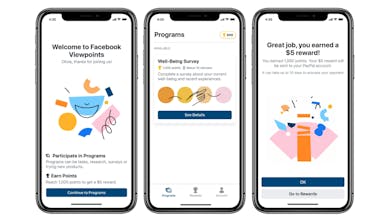Facebook Viewpoints, a new market research app that rewards people for participating in surveys, tasks and research. We believe the best way to make products better is to get insights directly from people who use them.
Subscribe
Sign in













Launched on November 25th, 2019


Launched on November 7th, 2017

Launched on November 5th, 2015






stoic.
Gulp
Gulp
Reelgood